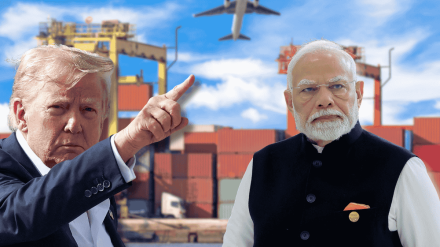Former U.S. President Donald Trump’s trade policies are once again making global headlines, as his renewed push for aggressive Donald Trump Tariffs sparks economic debates, market volatility, and diplomatic ripples across continents. Trump’s stance on tariffs, a defining feature of his previous term, has re-emerged as a central part of his political and economic strategy, targeting countries he believes engage in “unfair trade practices” against the United States.
A Return to Aggressive Trade Policy
Donald Trump’s tariff approach remains grounded in the “America First” ideology. His new proposals outline steep tariffs on a range of imported goods—particularly from countries with large trade surpluses with the U.S. He argues these measures will:
-
Protect American manufacturing jobs
-
Reduce dependency on foreign supply chains
-
Encourage domestic production and investment
Critics, however, warn that tariffs could increase prices for U.S. consumers, disrupt global supply chains, and trigger retaliatory measures from affected nations.
Key Sectors in the Spotlight
-
Technology & Electronics – Trump has signaled possible tariffs of up to 100% on certain high-value imports like microchips and advanced electronics. The stated goal is to encourage semiconductor manufacturing within U.S. borders.
-
Automobiles – Foreign-made cars, particularly from European and Asian manufacturers, face potential new import duties. This has raised concerns among global automakers with large U.S. markets.
-
Agriculture – Trump’s tariffs could extend to agricultural imports from countries that impose restrictions on U.S. farm exports, potentially escalating trade tensions with partners in Asia and Europe.
Global Response and Possible Trade War
While Trump insists tariffs are a negotiating tool, global reaction has been swift.
-
Allies and rivals alike have hinted at retaliation, with some preparing to impose counter-tariffs on American goods ranging from agricultural products to industrial machinery.
-
Emerging economies fear reduced access to the U.S. market, which could slow their export growth.
-
Global investors are watching closely, as uncertainty over trade policy affects stock markets, commodity prices, and currency exchange rates.
Domestic Impact
Within the U.S., the tariff debate has split opinion:
-
Supporters argue that short-term costs are worth the long-term benefits of revitalized domestic industries.
-
Opponents point out that higher import costs often translate directly into higher prices for consumers, which could contribute to inflation.
Some U.S. manufacturers, particularly in steel, aluminum, and textiles, have welcomed the move, anticipating a competitive boost. Retailers and tech companies, however, are bracing for increased costs on imported goods and components.
Political Implications
The tariff announcement comes at a crucial time politically. Trump’s team is framing the policy as a bold defense of American workers ahead of key elections, while opponents are painting it as economically risky and diplomatically damaging.
Given Trump’s history, these tariffs are not only an economic tool but also a political statement—a reminder to his base of his willingness to challenge global trade norms to “protect American interests.”
Live Updates – What to Watch Next
-
Negotiations: Trade talks with China, the EU, and other major partners are expected to intensify in the coming weeks.
-
Market Reaction: Wall Street is likely to respond sharply to any escalation in tariff announcements or retaliation from trading partners.
-
Sector Adjustments: Watch for U.S. companies accelerating efforts to localize production or shift supply chains away from heavily tariffed regions.
Conclusion
Donald Trump tariffs push has reignited the debate over the role of trade protectionism in the modern global economy. While the policy may energize domestic manufacturers and appeal to his political base, it carries significant risks of inflation, trade disputes, and international pushback.
The coming months will reveal whether these tariffs serve as a successful bargaining chip—or the opening shots of another prolonged trade war.




